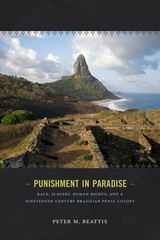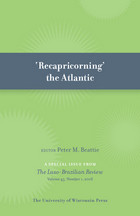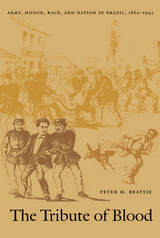

This special issue of Luso-Brazilian Review includes articles on the Lusophone South Atlantic by historians of Africa and Brazil originally presented in May of 2006 at the Michigan State University and University of Michigan’s Atlantic History Workshop “ReCapricorning the Atlantic: Luso-Brazilian and Luso-African Perspectives on the Atlantic World.” Workshop participants set out to “ReCapricorn the Atlantic” by assessing how new research on the Lusophone South Atlantic modifies, challenges, or confirms major trends and paradigms in the expanding scholarship on Atlantic History.

Beattie looks through sociological, anthropological, and historical lenses to analyze archival sources such as court-martial cases, parliamentary debates, published reports, and the memoirs and correspondence of soldiers and officers. Combining these materials with a colorful array of less traditional sources—such as song lyrics, slang, grammatical evidence, and tattoo analysis—he reveals how the need to reform military recruitment with a conscription lottery became increasingly apparent in the wake of the Paraguayan War of 1865–1870 and again during World War I. Because this crucial reform required more than changing the army’s institutional roles and the conditions of service, The Tribute of Blood is ultimately the story of how entrenched conceptions of manhood, honor, race, citizenship, and nation were transformed throughout Brazil.
Those interested in social, military, and South American history, state building and national identity, and the sociology of the poor will be enriched by this pathbreaking study.
READERS
Browse our collection.
PUBLISHERS
See BiblioVault's publisher services.
STUDENT SERVICES
Files for college accessibility offices.
UChicago Accessibility Resources
home | accessibility | search | about | contact us
BiblioVault ® 2001 - 2024
The University of Chicago Press









